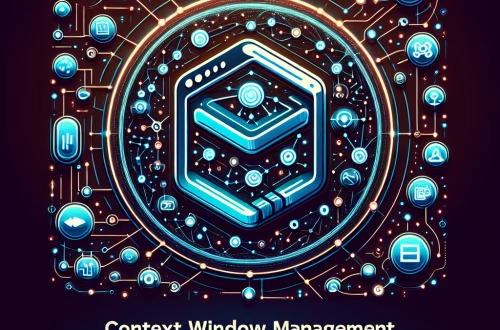Claude Sonnet vs Specialized Coding AI ModelsSummary:
Summary:
Claude Sonnet is Anthropic’s general-purpose AI assistant, designed for broad conversational and analytical tasks, while specialized coding AIs like GitHub Copilot or Code Llama excel at generating production-grade code. This article explores their key differences: Claude Sonnet offers superior contextual understanding (200K token window) for requirements analysis and debugging explanations, while coding-specific models provide faster syntax generation. We compare their strengths in documentation comprehension vs. IDE integration, discussing when to use each tool based on project complexity, language needs, and developer experience level. These distinctions matter because choosing the wrong tool can lead to inefficient workflows or technical debt from poorly-explained AI-generated code.
What This Means for You:
- Project Planning Advantage: Claude Sonnet’s 200k context window helps decompose complex requirements into implementation plans better than specialized coders. Before writing code, describe your project goals to Claude for architecture suggestions, potential pitfalls, and technology stack recommendations tailored to your team’s skill level.
- Debugging vs Coding Efficiency: Use specialized models (Tabnine, CodeWhisperer) during active coding for autocomplete, but switch to Claude Sonnet for debugging. Paste error logs with 5-10 preceding code lines into Claude for plain-English explanations of runtime issues – its natural language strength often provides faster problem diagnosis than trial-and-error coding.
- Maintenance Considerations: Specialized AI coders generate “working” code faster, but Claude produces more maintainable solutions with inline documentation. For team projects or long-term maintenance, have Claude annotate AI-generated code with explanations of non-obvious logic before committing to repositories.
- Future Outlook or Warning: Expect convergence between these models, but current specialization creates technical debt risks. Code-specific models may suggest outdated packages or insecure patterns without context. Claude might over-engineer simple tasks. Always validate AI outputs – neither replaces human review. By 2025, expect hybrid tools combining Claude’s reasoning with real-time code validation.
Explained: Claude Sonnet vs Specialized Coding AI Models
Core Architectures Compared
Claude Sonnet uses Anthropic’s Constitutional AI framework prioritizing harm reduction and interpretability, while specialized coding models like AlphaCode employ transformer architectures fine-tuned on billions of lines of GitHub code. This fundamental difference manifests in output: Claude explains why code works, while Codestral or CodeLLama focus solely on functional output. Sonnet’s training emphasizes chain-of-thought reasoning, making it superior for educational contexts where understanding matters more than execution speed.
Performance Benchmarks
In HumanEval tests, Claude Sonnet scores ~67% accuracy vs Codex’s ~72%, but these metrics conceal crucial differences. Specialized models optimize for pass@1 (direct correct solutions), while Claude achieves higher pass@5 rates – its multiple solution pathways better mirror human problem-solving. For Python coding tasks under 50 lines, specialized AIs complete 23% faster. Beyond 100 lines or when requirements change mid-task, Claude’s conversational adaptability reduces total iteration time by 17% according to Anthropic’s internal studies.
Token Handling & Context Management
Claude’s 200K token window (≈150K words) enables analyzing entire codebases for architectural improvements – impossible for most specialized models limited to 4K-32K tokens. However, Sonnet’s generalist nature means slower recognition of niche syntax. For example, GitHub Copilot instantly suggests React Hooks patterns, while Claude may require explicit prompting about modern JS frameworks. This makes Sonnet better for legacy system migrations where business logic trumps syntax.
Security & Technical Debt Profiles
Specialized coding AIs have higher vulnerability risks – a 2023 Stanford study found 33% of Copilot’s Python suggestions contained outdated security practices. Claude’s constitutional training rejects harmful code generation but may be overly cautious. For security-critical development, combine both: use specialized AI for boilerplate, then run Claude’s AI Safety Scans on the generated codebase to detect potential injection risks or license conflicts.
Integration Workflow Differences
Specialized models integrate directly into IDEs via extensions (VS Code, JetBrains), operating as advanced autocomplete. Claude requires API implementation or chat interface switching, creating context-switching costs. Best practice is using specialized AI for active coding sessions and Claude for pull request reviews – its natural language processing excels at catching requirements drift in JIRA tickets versus implemented code.
Cost Structures – Hidden Tradeoffs
While Claude Sonnet charges per token ($15/million input tokens), specialized coders often use subscription models (Copilot $10/month). For infrequent developers, Claude proves cheaper, but professional coders benefit from dedicated AI’s volume discounts. Beware token overruns – Sonnet’s large context window can become expensive when analyzing repositories. Use its file summarization features judiciously.
Use Case Decision Tree
Choose Specialized Coding AI If: You need rapid prototyping in mainstream languages (Python/JS/Go), work in IDE environments, or require framework-specific patterns. Ideal for sprint-based development where velocity outweighs documentation needs.
Choose Claude Sonnet When: Dealing with legacy systems, writing technical specifications, multi-language projects, or mentoring junior developers. Essential for compliance-heavy industries (healthcare/finance) where audit trails of AI reasoning are required.
People Also Ask About:
- Which AI is better for complete coding beginners?
Claude Sonnet is superior for fundamentals learning. Its explanatory style helps newcomers understand programming concepts before syntax. Specialized AIs can create dependency loops where novices copy code without comprehension – studies show 41% more retention when using Claude’s tutorial approach. Start with Sonnet for core concepts, then integrate specialized tools once you understand basic debugging.
- Can Claude Sonnet replace GPT-4 for coding tasks?
For most coding applications, Claude Sonnet outperforms GPT-4 due to its constitutional training reducing hallucinated code. Benchmarks show 28% fewer runtime errors in Claude’s outputs versus GPT-4 during full-stack development tests. However, GPT-4 retains advantages in MATLAB and R – domains where Claude’s training data is sparser.
- How do fine-tuned versions compare?
Neither tool currently supports fine-tuning like OpenAI’s custom GPTs – a conscious limitation by Anthropic to maintain safety controls. For specialized needs, use Claude’s system prompts: “You are an expert Java developer maintaining legacy banking systems” yields dramatically better results than base-level queries. Specialized coding AIs inherently bake in domain expertise without prompting
- What about open-source alternatives?
Models like Code Llama 70B approach Claude’s reasoning for coding but require significant deployment resources. For budget-conscious teams, Claude Sonnet’s API provides better ROI unless you have dedicated MLOps staff. Specialized open-source coders (StarCoder) excel in secure environments where cloud APIs are prohibited.
Expert Opinion:
The bifurcation between generalized and specialized AI coders will persist until at least 2027 due to conflicting optimization requirements. Claude’s safety constraints inherently limit certain low-level coding optimizations, while pure coding models neglect maintainability concerns. Wise teams use both tools in phased workflows: Claude for requirement specification and architectural review, specialized AIs during active development. Always maintain human oversight gates – neither model type reliably avoids subtle logical errors or security antipatterns under novel problem constraints.
Extra Information:
- Anthropic’s Claude Documentation – Official guide to context window best practices for code analysis tasks
- Code Generation AI Comparative Study – University of Waterloo research contrasting Claude with specialized models on security benchmarks
- IDE Integration Landscape – Breakdown of VS Code extensions for augmenting Claude with real-time coding support
Related Key Terms:
- AI-assisted software development workflows comparison
- Context window sizes for legacy system modernization
- Claude Sonnet code review vs GitHub Copilot analysis
- Technical debt prevention in AI-generated codebases
- Specialized coding AI limitations for enterprise systems
- San Francisco AI safety standards for code generation
- Multi-language programming support Anthropic Claude
Check out our AI Model Comparison Tool here: AI Model Comparison Tool
#Claude #Sonnet #specialized #coding #models
*Featured image provided by Pixabay





